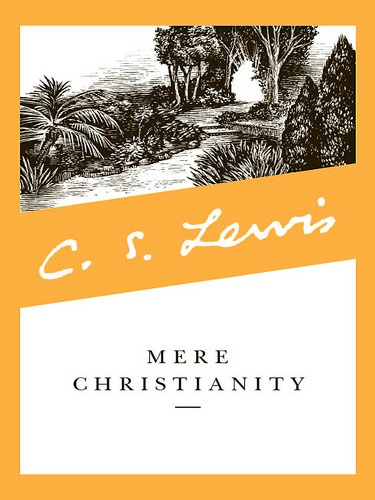A new commandment I give you: Love one another. As I have loved you, so you also must love one another. By this everyone will know that you are My disciples, if you love one another.
John 13:34-35
I am a person with strong views, both theologically and with respect to history and government (my specialized field of study). It’s hard sometimes being a person who holds to strong views because whenever you come across contrary views, the temptation is to want to “set people straight.” This is particularly true when emotions are aroused, and for someone like me who has written a blog for the past twelve years, the temptation is greater still.
Although I don’t have a theology degree, I have spent a large portion of the last fifty years or so delving into theology. The controversies of the past that continue to divide Christians today are controversies that I have studied as thoroughly as I can. As a result, I know what I believe when it comes to doctrines and why I believe them. While I remain open to new information, the probability of changing my basic beliefs is not high. The same can be said for those who endorse views that are not mine.
So I don’t write blog posts that try to convince my fellow believers that they should switch to my views. The Lord wants me to give them the liberty of conscience that I also desire for myself. At the end, we will all stand before Him and give an account.
The current political season also has divided Christians. It’s certainly fine to explain what we think is the proper way to proceed politically, but what I’ve noticed is that all too often that breaks down into merely saying the same things over and over. I’m not sure anything I’ve written about this has changed anyone else’s mind.
C. S. Lewis, who has helped as a spiritual guide for me in so many ways, offers what I think is the right perspective for all of us who declare our Christian faith. His guidance in this case applies directly to the universal church, but it also can apply to how Christians carry themselves in all matters that touch government and culture.

Currently, I am teaching my Lewis course to university students. We are embarking on Mere Christianity next week. As a prelude to doing so, I read to them a portion of the preface to the book, the part at the very end. It speaks to how Christians ought to understand one another and how we should act toward each other.
As always, Lewis’s illustrations help illuminate his points. In this preface, he pictures Christianity as a house in which we dwell. There is a hallway in the house lined with many doors on both sides. His goal in writing Mere Christianity was to get people at least into that hallway. Yet that’s not where the journey ends. One must go through a door. Why? “It is in the rooms, not in the hall, that there are fires and chairs and meals. The hall is a place to wait in, a place from which to try the various doors, not a place to live in.”
Those doors represent the various denominations of Christians and the slightly different theological views of each one. Some people immediately know which door they wish to enter, Lewis says, but others take their time as they try to figure out where they belong. I can empathize with that. My Christian walk has led me into a number of doors over time, not because I didn’t know what I believed, but because I’ve always sought the best option wherever I lived that is closest to what I believe and what the Lord wants me to do. How many doors have I entered? Let’s see: Lutheran, Assemblies of God, Wesleyan, Mennonite, Nazarene, independent churches with either charismatic or Baptistic leanings, and now Episcopal. I can say I know the strengths and weaknesses of them all.
Lewis continues,
When you do get into your room you will find that the long wait had done you some kind of good which you would not have had otherwise. But you must regard it as waiting, not as camping. You must keep on praying for light: and, of course, even in the hall, you must begin trying to obey the rules which are common to the whole house.

I would like to emphasize the portion of the quote that notes we must keep on praying for light, even if we have found our room. The Lord desires that we never stop learning from Him. After all, it’s a lifelong process. Lewis then adds, “And above all you must be asking which door is the true one; not which pleases you best by its paint and panelling. In plain language, the question should never be: ‘Do I like that kind of service?’ but ‘Are these doctrines true: Is holiness here? Does my conscience move me towards this?'” He carries it even further: “‘Is my reluctance to knock at this door due to my pride, or my mere taste, or my personal dislike of this particular door-keeper?'”
Since we are all individuals who are reading the Bible for ourselves, we simply will not agree on all points, so there’s nothing wrong with finding the appropriate “room” that best fits our understanding. But what of all those who we think have chosen a room that we never would have chosen? That’s where Lewis’s final words hit their mark.
When you have reached your own room, be kind to those who have chosen different doors and to those who are still in the hall. If they are wrong they need your prayers all the more; and if they are your enemies, then you are under orders to pray for them. That is one of the rules common to the whole house.
How do we treat our fellow believers who are “wrong” in their views? Are we praying for them? Do we perceive them as enemies rather than brothers and sisters? Even if we do have that perception, Lewis reminds us that we are to pray for them. We are all on this earthly journey together, whether we like it or not. And when we do all enter into the heavenly kingdom, I suspect that every one of us will realize that something we believed was not correct. Therefore:
A new commandment I give you: Love one another. As I have loved you, so you also must love one another. By this everyone will know that you are My disciples, if you love one another.
John 13:34-35
And that’s a commandment, not a suggestion.
